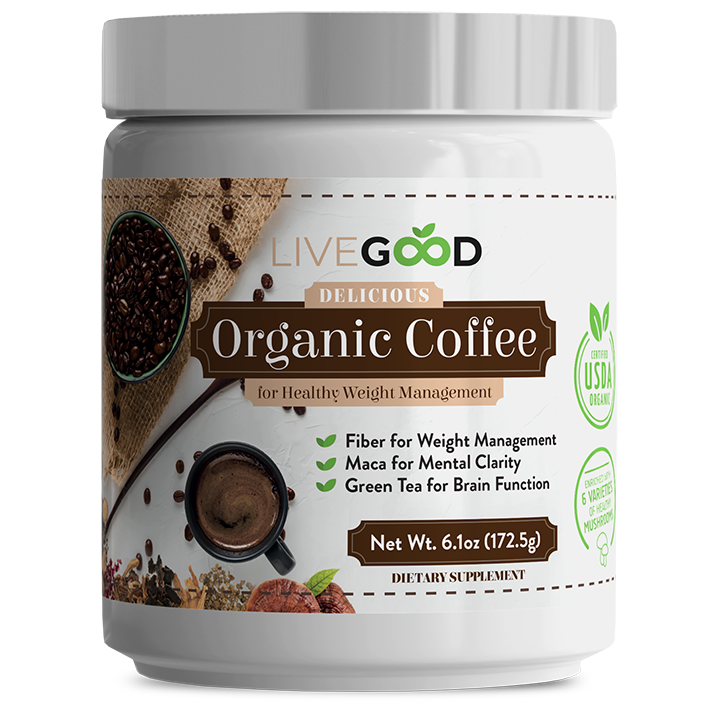Mushroom coffee has been getting a lot of buzz lately, not just because it’s something new to try. People are mixing their morning brew with mushrooms like lion’s mane, chaga, and cordyceps, with hopes of sharper focus, less brain fog, and better overall mental clarity. More folks are swapping their usual cup of joe for this earthy blend, so I thought it was time to really check out what’s happening, and whether there’s real science supporting mushroom coffee’s impact on mental clarity.

The Basics: What Is Mushroom Coffee?
Mushroom coffee isn’t just regular coffee with mushrooms thrown in. It’s actually a blend of roasted coffee beans and powdered extracts from functional mushrooms. Popular picks include lion’s mane, chaga, cordyceps, and reishi. These mushrooms are dried, powdered, extracted for their essential plant compounds like polysaccharides and beta glucans, and mixed into coffee in a process that results in a pretty smooth cup with a gentle, earthy taste.
These functional mushrooms don’t have any relationship with so-called magic mushrooms; no trippy side effects—just wellness benefits that have foundations in East Asian herbal traditions stretching back centuries. The real thing that sets this blend apart is how mushrooms might interact with your body and mind compared to plain caffeine.
How Mushroom Coffee Supports Mental Clarity
People switching to mushroom coffee regularly mention feeling more focused, less jittery, and experiencing a more stable energy throughout the day. Let’s look at why mushroom coffee is earning this reputation for boosting mental clarity:
- Reishi Mushroom
Reishi, often called the “mushroom of immortality,” has been used for centuries to support relaxation and longevity. It’s known for its adaptogenic properties, helping the body manage stress while promoting calm focus and better sleep quality. Rich in antioxidants and immune-supporting compounds called beta-glucans, Reishi can also enhance overall wellness by balancing energy levels without the jittery effects of caffeine.
King Trumpet Mushroom
King Trumpet mushrooms are loaded with powerful antioxidants such as ergothioneine, which helps protect cells from oxidative stress. They support cardiovascular health by lowering cholesterol levels and improving circulation. Their high content of protein, fiber, and minerals like selenium and copper makes them a great addition for immune support and metabolic balance — turning your coffee into a nourishing daily tonic.
Shiitake Mushroom
Shiitake mushrooms are prized not only for their savory flavor but also for their ability to strengthen the immune system. They contain unique polysaccharides, including lentinan, which supports immune function and gut health. Shiitake also helps maintain healthy cholesterol levels and provides B-vitamins that aid in natural energy production — a perfect complement to your morning brew.
Lion’s Mane Mushroom
Lion’s Mane is best known for its brain-boosting benefits. It contains hericenones and erinacines, compounds that may stimulate nerve growth and support cognitive function. Many people use it to enhance focus, memory, and mental clarity — making it an ideal addition to coffee for productivity and creativity. It’s also studied for supporting mood balance and long-term brain health.
Turkey Tail Mushroom
Turkey Tail is rich in powerful immune-modulating compounds like polysaccharopeptides (PSP and PSK), which help the body’s natural defenses stay balanced and strong. It also supports a healthy gut microbiome, acting as a natural prebiotic that feeds beneficial bacteria. Regular intake of Turkey Tail may help improve digestion, immunity, and overall vitality — especially during seasonal changes.
Maca Root Powder
Maca, though technically a root and not a mushroom, pairs perfectly with coffee for its natural energy-enhancing properties. Native to the Andes, it’s known to improve stamina, mood, and hormone balance without the crash of caffeine. Maca helps support adrenal health, boost libido, and promote endurance — making it a great adaptogen to keep you energized and focused throughout the day.
Instead of just ramping up your alertness like a straight espresso, mushroom coffee works to balance the caffeine effect with adaptogens that soften any edginess—something that’s a big plus if traditional coffee leaves you feeling anxious or restless.
Coffee and Mushrooms: The Science of a Balanced Blend

You still get real coffee with mushroom coffee. Caffeine, famously, blocks adenosine in your brain, making you more awake. That’s a big reason people love their morning cup.
But caffeine can go overboard, sometimes creating anxiety, restlessness, or crashing energy later on. The compounds in functional mushrooms—lion’s mane and reishi especially—are adaptogens. These may help your body handle stress, potentially evening out caffeine’s highs and lows. The balancing aspect hasn’t been totally proven in large clinical trials, but plenty of users notice calmer energy and a smoother landing after drinking it—including me.
This means you still get coffee’s alertness without the drawbacks. For people with demanding schedules, or those wanting to reduce their caffeine intake, this combo can be really powerful for supporting ongoing focus.
What Research Says About the Benefits
If you want more than hype, check out what science has to say. There’s some promising research around these functional mushrooms (though mostly not in coffee blends yet):
- Sharper Thinking: A small Japanese study noted that adults taking lion’s mane extract for eight weeks did better on memory tests and felt more focused. The effects went away once they stopped using it (PubMed).
- Stress Support: Reishi and cordyceps may ease the impact of chronic stress, shown in both animal and some early human trials, supporting a better mood and clearer head (NCBI).
- Loaded With Antioxidants: Chaga is packed with antioxidants that protect brain cells from oxidative stress—one sneaky cause of mental fatigue and cloudy thinking.
Critically, large-scale human research is still needed to spell out exactly how effective these mushrooms are. Even so, initial studies and plenty of real-world stories point to real promise.
Why Choose Mushroom Coffee Over Regular Coffee?
- No-Jitters Energy: Mushroom coffee is often described as providing calm, steady wakefulness, minus quick spikes or the shakes.
- Easier on Stomachs: Regular coffee can be tough on sensitive stomachs thanks to high acidity. Mushroom coffee often feels gentler and less harsh.
- Bonus Nutrients: Besides caffeine, you get extra minerals, beta glucans, and unique plant compounds that don’t appear in coffee alone—supporting your immune system and overall wellbeing.
- Adaptogen Power: Instead of only stimulating your nervous system, these blends may help your body handle daily stress, a win if your day is packed or unpredictable.
Key Things to Consider Before Trying Mushroom Coffee

If you’re thinking about changing your coffee routine, here are a few questions worth asking:
- Which mushrooms are included? Always check labels—lion’s mane is a top pick for brain support, but chaga and cordyceps offer unique qualities too.
- How is it sourced? Look for brands that use organic, lab-tested mushrooms—these fungi soak up both nutrients and potential contaminants from where they grow.
- Does it include caffeine? Most mushroom coffees are a blend of coffee and mushroom extract, so you’re still getting some caffeine. Decaf options exist if that’s what you need.
- What does it taste like? Expect a light earthy note. The best versions taste similar to a classic medium roast, maybe with more depth. If you’re nervous, try mocha flavors or add your favorite milk—makes a smoother switch.
Overcoming Common Challenges
Adapting to the Mushroom Flavor
If earthy flavors aren’t your favorite, this might take a little time to get used to. Adding oat, almond, or coconut milk plus a pinch of cinnamon can help mellow it out. Some people ease themselves in by mixing half mushroom coffee with half regular coffee at first.
Choosing Quality Products
It’s crucial to select products from trustworthy companies. Some brands use fillers, lower-grade mushrooms, or only a small amount of extract. Third-party tested or wildcrafted sources are better bets for both flavor and results.
Frequently Asked Questions
Does mushroom coffee taste like mushrooms?
Not really—most blends are made to hide the earthy flavors. Expect a rich, smooth cup with just a hint of earthiness. Adding your usual milk or sweetener makes it even more approachable.
Can you mix mushroom and regular coffee?
Absolutely. It’s fine to blend them however you want—half and half, or just stir mushroom powder into your usual cup.
Is mushroom coffee okay to drink daily?
For most people, yes, if you stick to serving suggestions and pick reputable products. If you have allergies, health conditions, or take medication, be sure to check with a healthcare provider first.
How long does it take to feel results?
For many people, increased focus or clarity appears on the first day, while others notice benefits after a week or two. As with any habit, consistency really helps.
Wrapping Up
Mushroom coffee is appealing if you want to get more out of your daily cup, but with fewer of the caffeine jitters. For me, bringing together ancient fungi wisdom and modern coffee culture is a creative way to keep energy steady and thinking sharp. It’s worth checking out if you’re curious. With so many blends available, there’s sure to be one that fits your style. Just go for top quality, listen to your body, and enjoy the adventure as you find your next favorite daily ritual!
